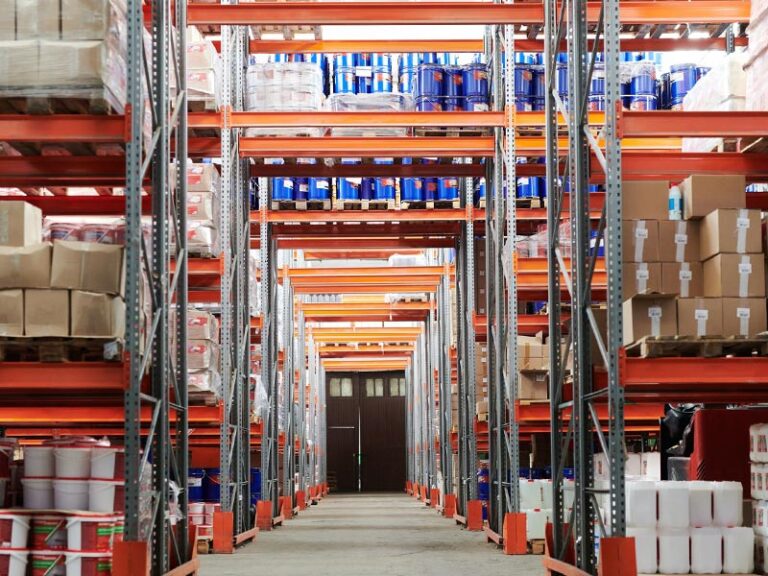
As the world continues its shift towards the digital space, various sectors have experienced the wonders of digital transformation. The entrance of artificial intelligence (AI), automation programs, and the like have revolutionized the processes of various companies, and freight forwarders are no exception.
With technology evolving at a rapid pace, more and more freight forwarders are adopting the latest technologies into their processes.
Digitalization has provided more quality-of-life features that help companies enhance their business operations, such as order processing, tracking, and inventory management. This article will list and break down different innovations that have impacted the freight industry.
Innovation in Logistics: The Impact of Technology on Freight Services
1. Artificial intelligence
Artificial intelligence is a game-changer in the world of logistics. AI has been used to help companies optimize their supply chains for years. It analyzes data from various sources, including satellite imagery and GPS systems.
These features allow companies to reduce costs by optimizing routes, reducing fuel usage, and finding ways to utilize existing resources.
2. Robotic press automation
Robotic press automation (RPA) makes room for increased productivity, meaning that companies can get their products to market faster while also cutting costs.
This innovation is especially important when consumer demand is at an all-time high, and companies must quickly meet their customers’ needs to stay competitive.
One example of RPA is automated carts. It revolutionized freight transport when it was introduced because conventional freight transportation relied on human labor. Automated carts meant that shipments could be moved faster and at a much lower cost.
3. Blockchain technology
Many people frown upon the idea of blockchain because of the misconceptions and complexities that surround the technology. But from a logistical standpoint, you don’t want to ignore its importance and impact on freight services.
Blockchain technology has a role to play in terms of inventory management. It can help companies manage their inventories by ensuring they have enough stock on hand to meet demand while enabling faster delivery times.
4. Autonomous vehicles
Freight services and logistics are some of the main industries that autonomous vehicles impacted. With more and more companies using autonomous vehicles for deliveries, it’s become easier for them to offer their products and services to customers who live in areas that are difficult to access by traditional means.
One of the most significant changes made possible by autonomous vehicles is the ability to deliver goods with less risk. In many cases, this has allowed companies to expand their delivery options while reducing costs at the same time.
5. Cloud-based systems
Before cloud-based systems entered the picture, freight forwarding companies relied heavily on traditional methods to keep track of documents and other requirements related to their shipments. Ultimately, more tasks to account for meant that companies required more staff.
In turn, the introduction of the cloud has smoothened workflows and the need for a workforce, leading to reduced overhead costs.
Additionally, the move to cloud-based systems has allowed for greater collaboration between different parts of the supply chain because of accessibility. Documents and files can be stored and shared immediately on the cloud, allowing multiple people to work on a project simultaneously.
6. Drones
Drones are a new way to get packages from point A to point B, changing how businesses think about shipping. For one thing, drones are responsible for making it easier and cheaper to deliver goods.
The cost of using a drone to deliver something is decreasing every year—and it’s expected to keep falling as the technology improves and becomes more commonplace. As that happens, you’ll see more retailers and businesses using drones in their regular workflows.
7. Crowd shipping technology
Crowd shipping allows companies to ship their products with minimal effort and expense, focusing on their core business instead of worrying about managing logistics. It also makes it easier for goods to reach customers in remote areas or those who want or need special accommodations.
It works using a courier network to deliver packages to customers promptly. It benefits both the seller and customer because the orders arrive faster. It shows good service from the seller that results in a satisfied buyer.
8. Geolocation technology
Geolocation technology is great because it optimizes the supply chain and enhances the customer experience. It tracks inventory in real-time, checking its transit status and arrival date. It’s also capable of viewing inventory levels in different locations to get insights on how to optimize a product allocation strategy.
Brace for a Technological Takeover
The beauty of technology is how it has made people’s lives easier. Whether it’s for leisure or business, there’s no doubt that continuous technological advancements have had a positive impact on society. The freight industry is no exception, as companies have benefitted from this innovation in logistics.
Only time will tell what changes the business landscape will encounter and how technology will impact the way they operate. If you’re looking for a domestic freight forwarder in the Philippines to help you, make sure to partner with a company that leverages the latest tools and technologies.
Fortunately, Dash Cargo is here to provide everything you need and more. Get in touch with us today to learn more about our services!


